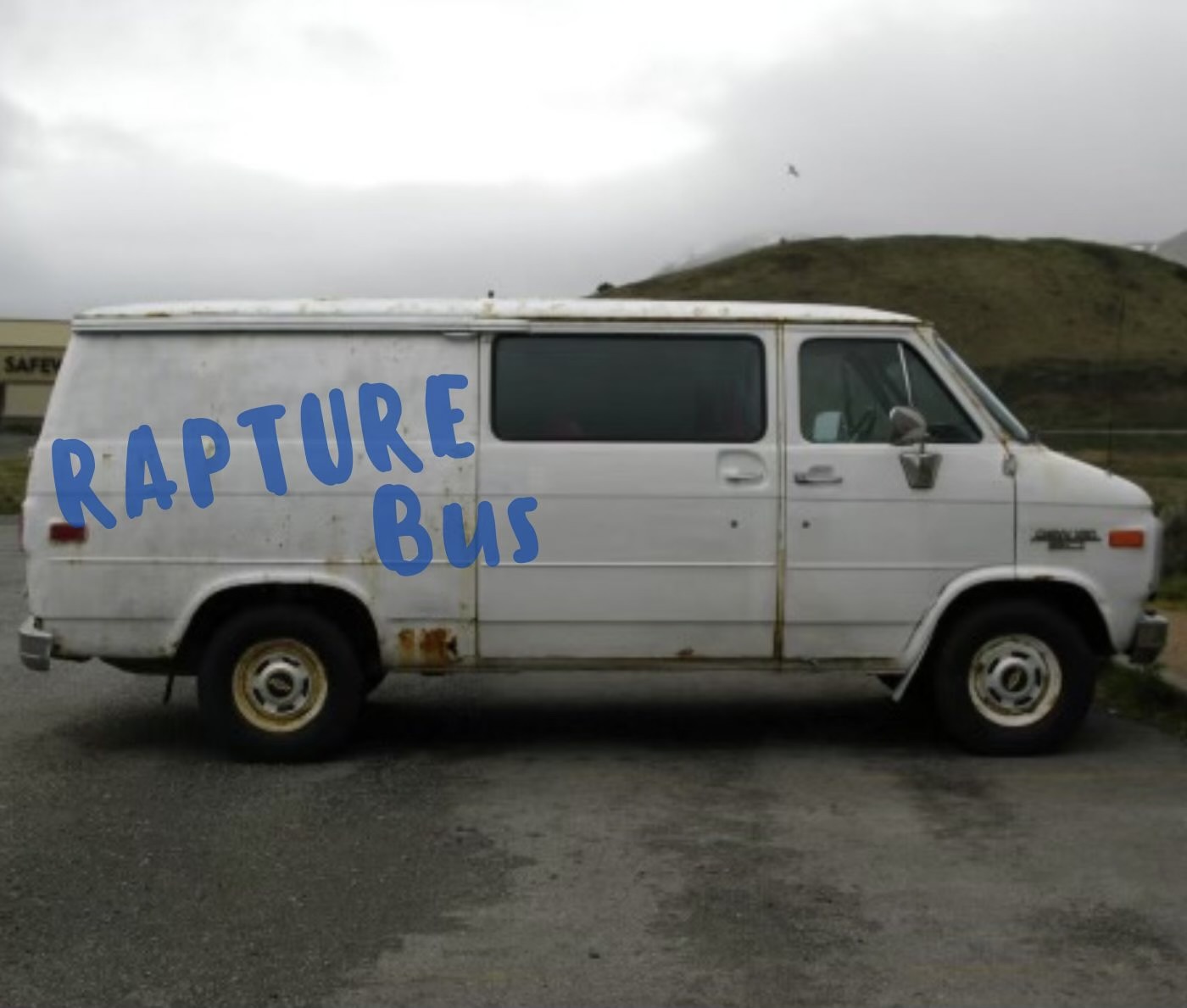Parousia | Harpazō | Apantēsis
End-times prophecy is a hot debate among evangelicals. Are you pre-trib? Mid-trib? Post-Trib? Pan-trib? Don’t know and don’t care?
Let’s define a few things if you don’t know what I’m talking about.
The tribulation period: The Bible clearly teaches there will be some time of tribulation near the end of our world as we know it. The tribulation is prophesied in Daniel, forewarned in Matthew, Mark, and Luke, and described in Revelation.
Pre-, mid-, post-, pan- qualifiers mean different points during the tribulation people think believers will leave the earth. Pre- is before the time of tribulation begins, mid- is a midpoint, post- is after it’s over, and pan- is non-committal on the timeline. Some say, “It will all pan out how it’s supposed to.”
The biggest reason we have differing opinions is because some believe The Day of the Lord and The Day of Christ are two separate events. But are they really? What do you say we read our Bibles? Here are some items to ponder and we’ll address the first three today.
Biblical truths:
- Jesus parousias (returns).
- Believers are harpazōed (caught up) at some point.
- Believers apantēsis (meet) Jesus.
- Jesus is now at the right-hand of the Father and He returns to earth…(how many times?).
- There is a defined tribulation period.
- “Some” are taken and “some” are left.
- The deliverance of the righteous is an event.
- The judgment of the wicked is an event.
Thanks for bearing with me anglicizing these Greek words. I have to put it into a structure I understand, and hey, at least you’re spared from hearing my country accent on top of it! Y’all keep on reading for what these words mean.
The disciples asked Jesus for a sign of His coming AND the end of the world.
Mat 24:3 And as he sat upon the mount of Olives, the disciples came unto him privately, saying, Tell us, when shall these things be? and what shall be the sign of thy coming, and of the end of the world?
Jesus answers them in Matthew 24:29-31.
29 Immediately after the tribulation of those days shall the sun be darkened, and the moon shall not give her light, and the stars shall fall from heaven, and the powers of the heavens shall be shaken: 30 And then shall appear the sign of the Son of man in heaven: and then shall all the tribes of the earth mourn, and they shall see the Son of man coming in the clouds of heaven with power and great glory. 31 And he shall send his angels with a great sound of a trumpet, and they shall gather together his elect from the four winds, from one end of heaven to the other.
Some will say of course, this passage is in reference to The Day of the Lord which is at the end of the tribulation period, but the Day of Christ is before that, when believers are raptured (harpazōed) out of the world.
The questions we should be asking ourselves are:
- Does Jesus return more than once?
- When does Jesus return (whether once or twice)?
- When are we caught up?
To answer these questions, let’s explore the three important Greek words.
G3952 parousia (pronunciation par-oo-see’-ah): From the present participle of G3918; a being near, that is, advent (often, return; specifically of Christ to punish Jerusalem, or finally the wicked); (by implication) physical aspect: – coming, presence.
G726 harpazō (pronunciation har-pad’-zo): From a derivative of G138; to seize (in various applications): – catch (away, up), pluck, pull, take (by force).
G529 apantēsis (pronunciation ap-an’-tay-sis): From G528; a (friendly) encounter: – meet. The best description of this word I’ve heard used is to go out partially and meet a dignitary, a king, or someone of importance and you accompany them back to your location. In this instance, we would be meeting Jesus in the air to return back to earth with him.
Now that we know what these words mean, let’s look at the passage below and ask ourselves, is the harpazō (caught up) / apantēsis (meet the king) event before the parousia (coming) or do they take place at the same time?
1 Thessalonians 4:15-17 15 For this we say unto you by the word of the Lord, that we which are alive and remain unto the coming (parousia – G3952) of the Lord shall not prevent them which are asleep. 16 For the Lord himself shall descend from heaven with a shout, with the voice of the archangel, and with the trump of God: and the dead in Christ shall rise first: 17 Then we which are alive and remain shall be caught up (harpazō G726) together with them in the clouds, to meet (apantēsis G529) the Lord in the air: and so shall we ever be with the Lord.
It sure seems all of this happens at the same time, which must mean the Day of Christ and the Day of the Lord are the same Day. How are you feeling about it? This topic is so fascinating, and it is certainly a time to prepare for and look forward to. Until next time, keep praying about it. We’ve got a lot more to talk about!
Fully immersed in The Scarlet Letters.

